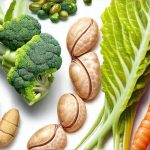Kidney Support Through Root-Based Cooked Vegetables
Chronic kidney disease (CKD) affects millions worldwide, often silently progressing through stages with minimal early symptoms. While management typically involves medication and lifestyle adjustments guided by healthcare professionals, dietary choices play a crucial role in slowing progression and supporting overall kidney health. Many conventional diets heavily emphasize processed foods and ingredients that can place undue stress on the kidneys; conversely, embracing whole, natural foods—especially those prepared thoughtfully—can offer significant benefits. Focusing on nutrient-dense options minimizes metabolic waste products the kidneys need to filter while providing essential vitamins and minerals.
Root vegetables, often overlooked in modern diets, represent a powerful tool in this supportive strategy. These earthy treasures – carrots, beets, parsnips, turnips, radishes, and sweet potatoes among others – are naturally low in potassium and phosphorus compared to many other vegetable groups, making them advantageous for individuals managing kidney function. More importantly, they offer a wealth of soluble fiber, which aids digestion and reduces the burden on kidneys by promoting regular elimination of waste products. They also contain vital antioxidants and phytonutrients that combat oxidative stress, a key contributor to kidney damage. Cooking these vegetables properly is essential to further optimize their benefits and minimize potential drawbacks.
The Power of Preparation: Optimizing Root Vegetable Nutrition for Kidney Health
Simply choosing root vegetables isn’t enough; how they’re prepared significantly impacts their suitability for kidney support. Raw root vegetables can be higher in potassium, a mineral that kidneys struggling with filtration may have difficulty processing. Cooking these vegetables leaches out some potassium into the water, reducing the overall intake per serving. This is why methods like boiling or steaming are often recommended – and using the cooking water for soups or stocks should generally be avoided if you’re monitoring potassium levels closely. However, discarding the cooking water isn’t always necessary; it can provide nutrients to those who don’t have kidney concerns. To learn more about maintaining a balanced diet while managing kidney health, explore daily nutritional awareness. The goal isn’t necessarily elimination of potassium but rather mindful management.
Beyond leaching, cooking methods also affect nutrient availability and digestibility. Roasting brings out natural sweetness, enhancing flavor and encouraging consumption—important for adherence to a dietary plan. However, prolonged high-heat roasting can degrade some vitamins. Steaming preserves more heat-sensitive nutrients while maintaining texture. A diverse approach – using different cooking techniques – ensures you’re maximizing the nutritional benefits of each root vegetable. Consider also that smaller pieces leach potassium faster than larger ones during boiling; cutting vegetables into uniform sizes aids consistent preparation and predictable nutrient content.
Furthermore, avoiding added salt during cooking is paramount for kidney health. Excessive sodium intake increases blood pressure, placing additional strain on these vital organs. Instead, focus on enhancing flavor with herbs, spices, and a touch of acidity (like lemon juice or vinegar). This approach not only supports kidney function but also creates more delicious and satisfying meals.
Beetroot: A Crimson Champion for Kidney Support
Beetroot often receives attention for its vibrant color and earthy sweetness, but it’s also a nutritional powerhouse particularly relevant to kidney health. It’s rich in betaine, a compound shown to help protect the kidneys from damage and improve their function. Betaine assists in liver detoxification, reducing the workload on the kidneys as well. Beetroot is generally low in potassium when cooked and contains nitrates which can support healthy blood flow. To further enhance your understanding of supportive dietary practices, consider foods that support kidney filter function.
Preparing beetroot for optimal kidney support involves choosing cooking methods carefully. Boiling beetroot significantly reduces its potassium content, while roasting preserves more of its beneficial compounds but might slightly increase potassium levels. A good strategy is to boil beetroot until tender, then roast it briefly with herbs and spices after draining the water. This balances nutrient retention with potassium management.
Beetroot’s versatility extends beyond simply being a side dish. Beetroot juice (in moderation, as sugar content can be high) offers a concentrated source of betaine. Incorporating grated beetroot into salads or using it to make vibrant dips are also excellent ways to enjoy its benefits. Remember portion control is key; even healthy foods should be consumed in appropriate amounts.
Carrot’s Gentle Support: Vitamins and Fiber for Kidney Wellness
Carrots, ubiquitous in many diets, offer a gentler approach to kidney support compared to some other root vegetables. They’re naturally low in potassium and phosphorus when cooked, making them safe and suitable for individuals managing CKD. Carrots are an exceptional source of beta-carotene, which the body converts into vitamin A – essential for immune function and overall health. For a broader understanding of kidney-friendly food choices, review the best vegetables for prostate and kidney health.
Cooking carrots properly helps maximize their benefits. Steaming is a fantastic method as it preserves beta-carotene while slightly reducing potassium levels. Roasting carrots concentrates their sweetness, making them more appealing—but again, be mindful of potential increases in potassium with prolonged exposure to high heat. Avoid adding salt during preparation and instead opt for spices like ginger or turmeric which boast anti-inflammatory properties.
Beyond being a snack or side dish, incorporating carrots into soups and stews provides both flavor and valuable nutrients. Carrot juice (in moderation) can be a refreshing source of beta-carotene, but it’s important to consider the sugar content if managing diabetes alongside kidney disease. A balanced approach that prioritizes whole carrot consumption is generally preferred.
Parsnip’s Subtle Sweetness: A Potassium-Conscious Choice
Parsnips, often compared to carrots due to their similar appearance, offer a unique flavor profile and valuable nutritional benefits for kidney support. They are lower in potassium than many other vegetables – even some root vegetable counterparts – making them an excellent choice for individuals monitoring their intake. They also provide a good source of vitamin C which is essential for immune function and helps protect against oxidative stress. To learn more about incorporating supportive foods into your diet, explore foods that support kidney drainage without irritation.
The best way to prepare parsnips for kidney health is through boiling or steaming, followed by seasoning with herbs and spices. Boiling effectively leaches out potassium while preserving the subtle sweetness that makes parsnips so appealing. Roasting can enhance flavor but may slightly increase potassium levels; if roasting, use a shorter cooking time and avoid over-seasoning with salt.
Parsnips are incredibly versatile in the kitchen. They can be mashed as an alternative to potatoes, roasted alongside other root vegetables for a flavorful side dish, or added to soups and stews for depth of flavor. Their slightly sweet and earthy taste makes them a delightful addition to many meals – one that supports kidney health without compromising on enjoyment.
It is important to remember that this information is intended for general knowledge and informational purposes only, and does not constitute medical advice. It is essential to consult with a qualified healthcare professional for any health concerns or before making any decisions related to your health or treatment. Dietary recommendations should always be tailored to individual needs and circumstances under the guidance of a registered dietitian or physician specializing in kidney disease management.
Consider incorporating herbs known for their supportive properties, as detailed in herbal support for the kidney system to further enhance your dietary approach.
To optimize overall wellness alongside these dietary adjustments, explore gentle movement practices that preserve kidney energy.





















